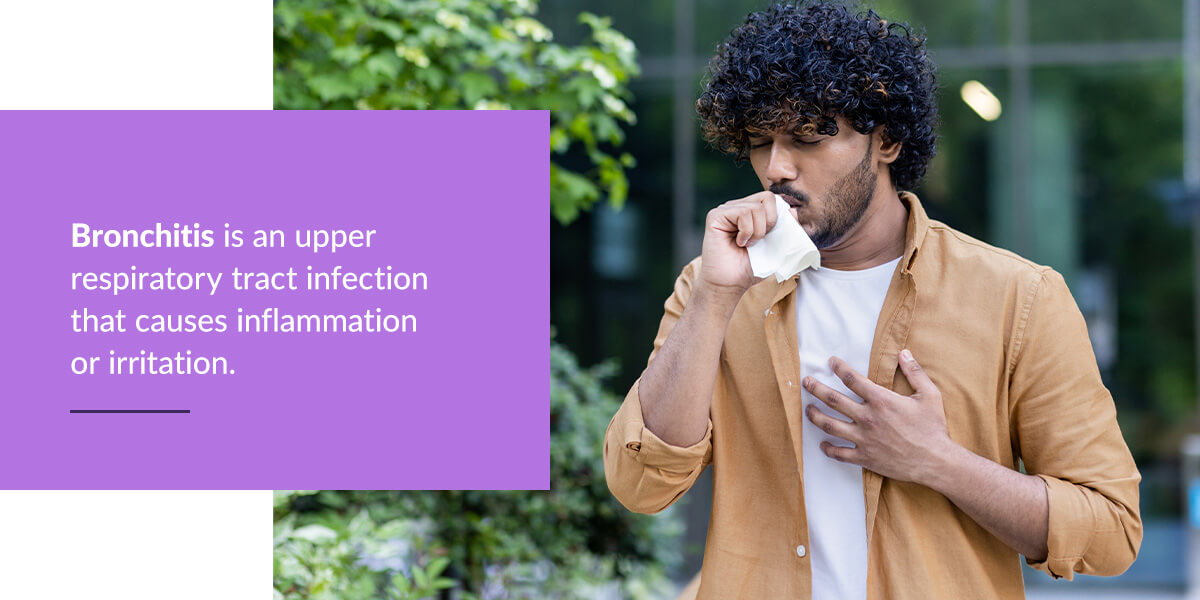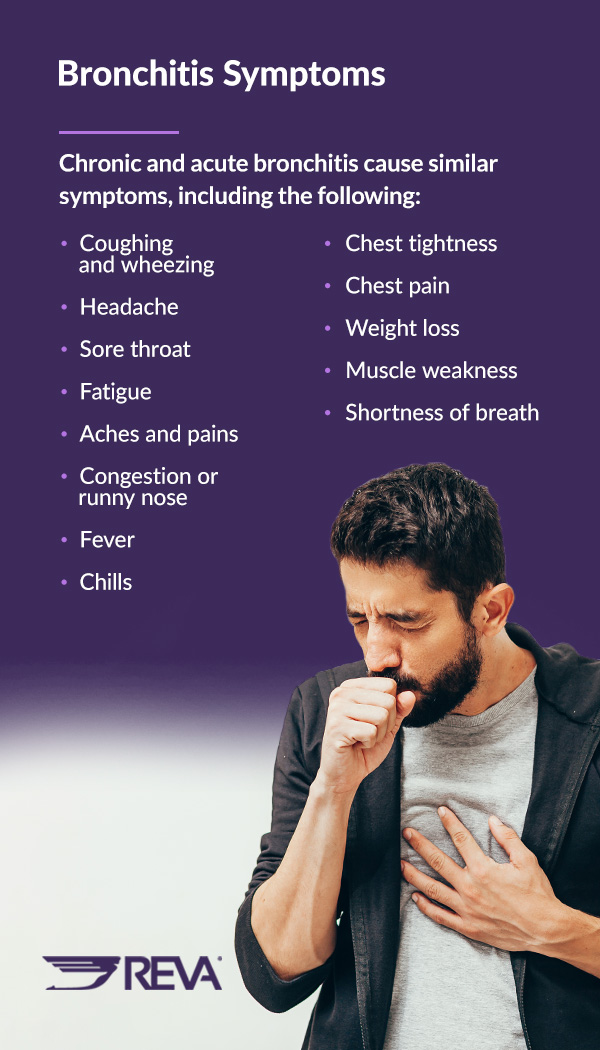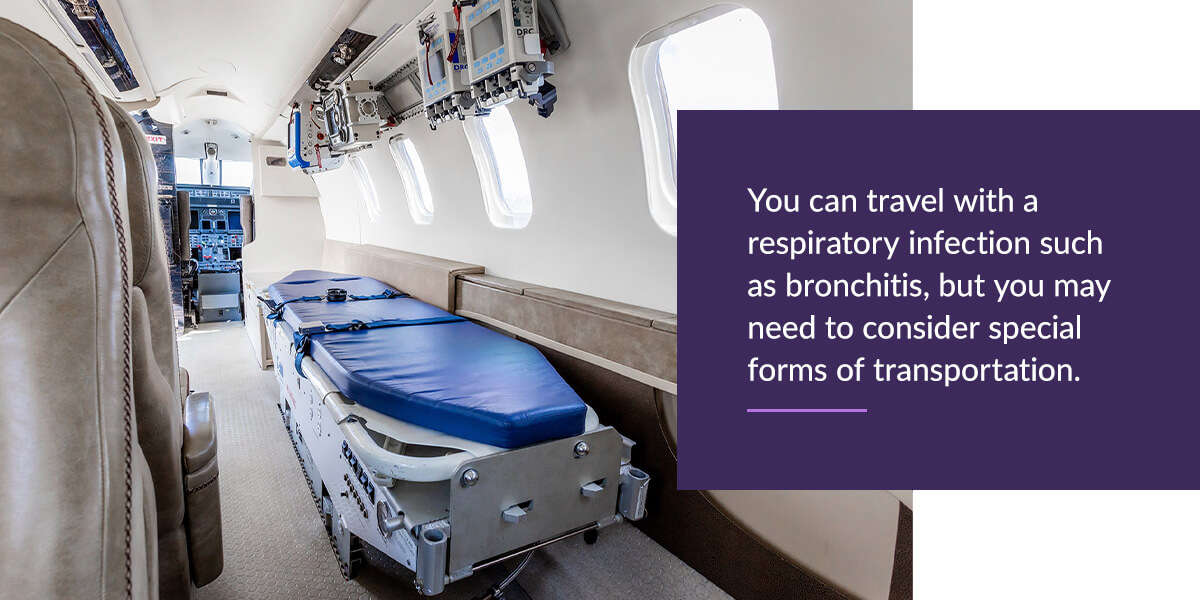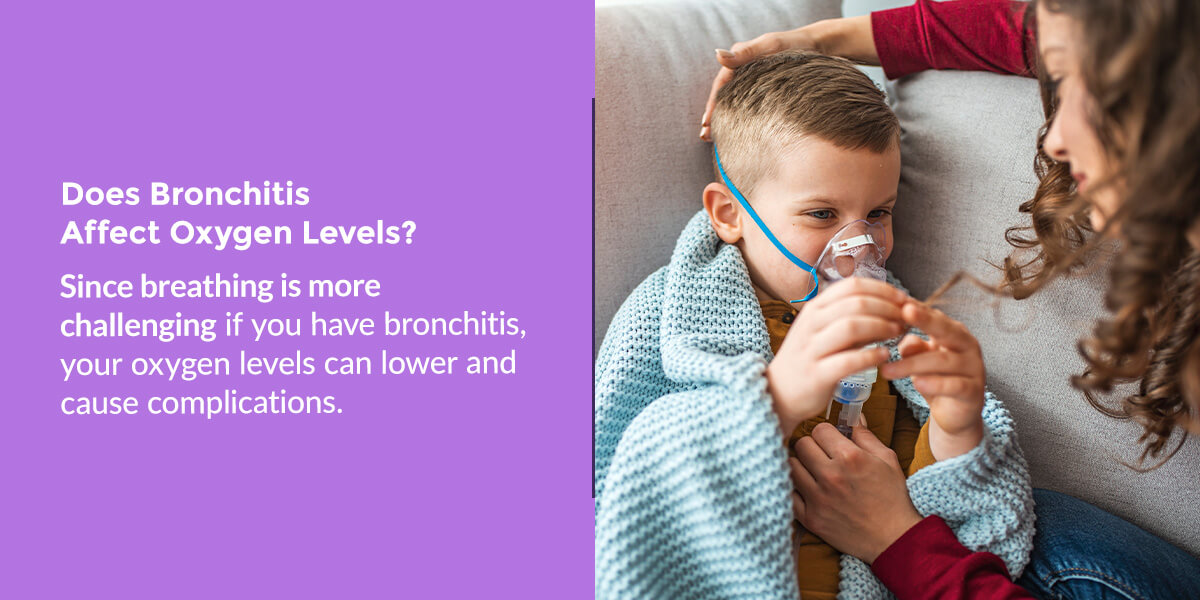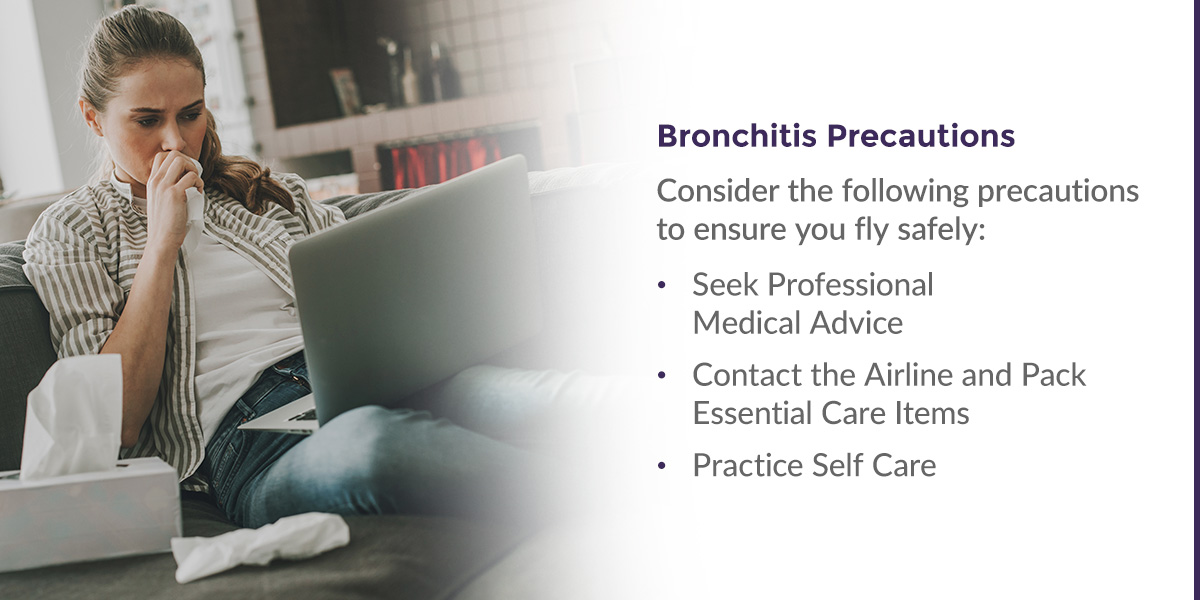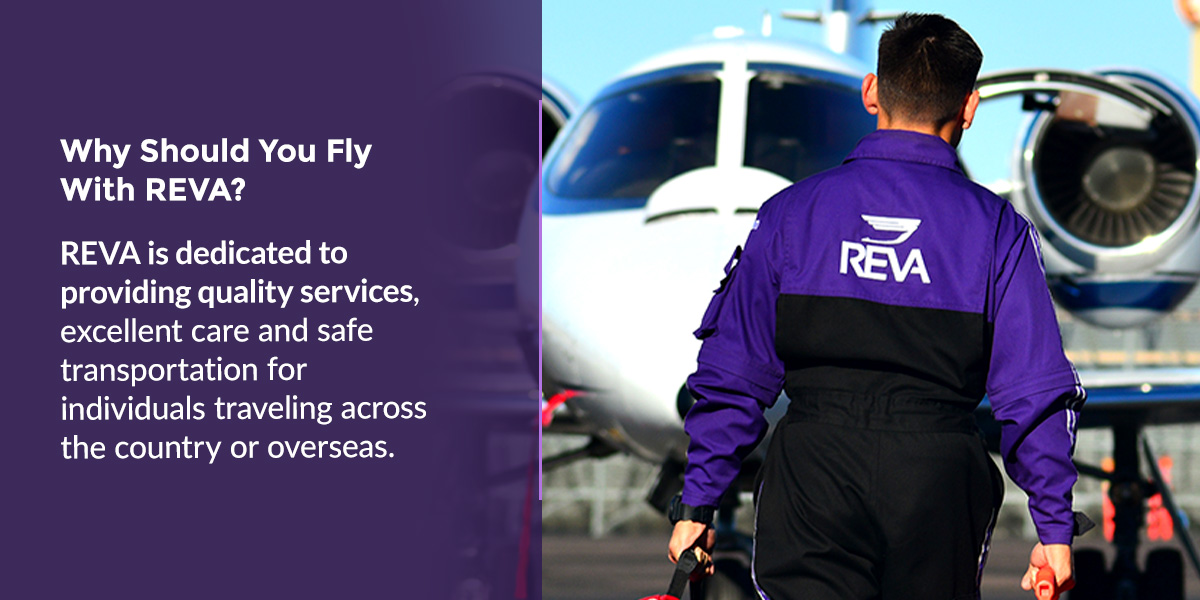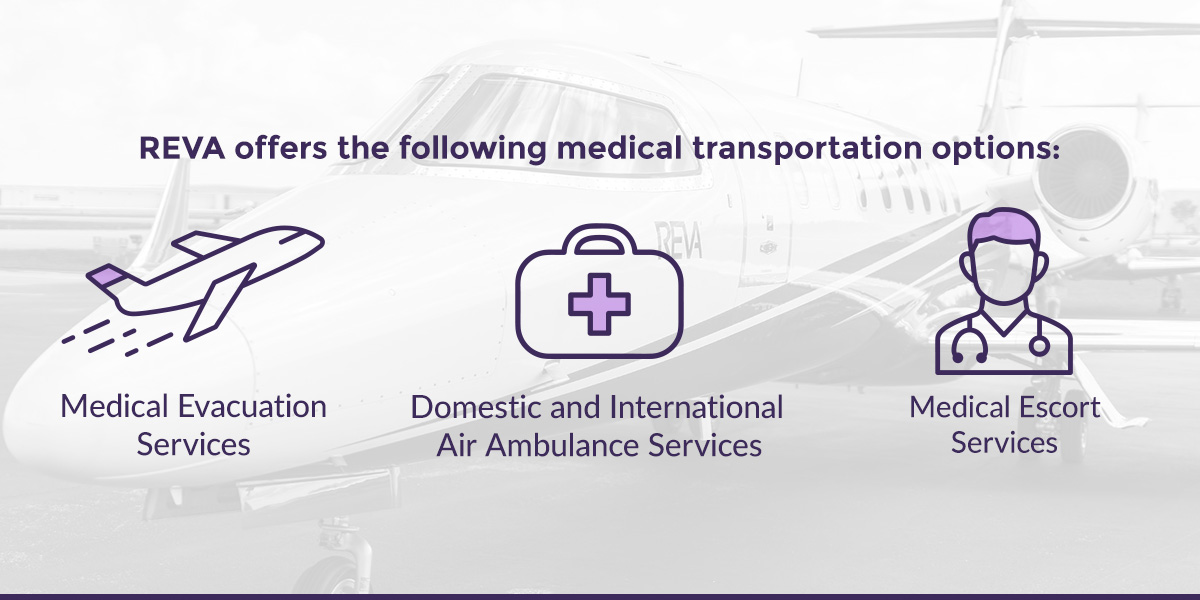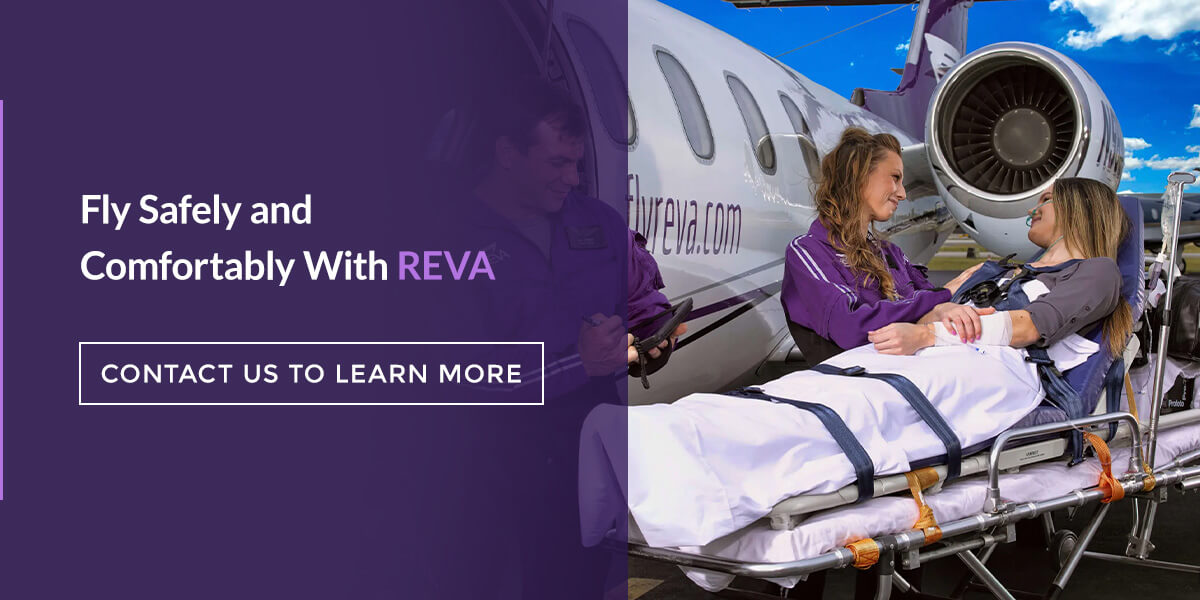Blog
STAYING ON THE FOREFRONT OF MEDICAL AIR TRANSPORTCan You Fly With Bronchitis?
Bronchitis can be a mild or serious medical condition, and flying with bronchitis presents additional risks. You can fly with bronchitis when you take special precautions, consult with your doctor and choose the safest air travel option. Private medical flights offer a safe, comfortable alternative to commercial flights. Flying private allows a passenger to remain comfortable and receive essential, in-flight medical care from an experienced team.
Important Facts About Bronchitis
Understanding bronchitis facts can help you better understand the condition.
Bronchitis is an upper respiratory tract infection that causes inflammation or irritation. This lung condition is often contracted by older individuals, children and people with serious health conditions. It affects the bronchial tubes, which are responsible for carrying air into and out of the lungs. The bronchial tubes become inflamed, which typically causes individuals to produce and cough up thick mucus. The following are typical causes of bronchitis:
- Viruses
- Bacteria
- Smoking
- Exposure to pollutants
Bronchitis is either acute or chronic:
- Acute bronchitis: Acute bronchitis is a temporary condition that can develop during or after a cold, sore throat or flu. It is typically more common, and symptoms usually last for up to two weeks.
- Chronic bronchitis: Chronic bronchitis is a persistent, long-term condition that can continue for up to three months. If left unchecked, chronic bronchitis can damage the lungs, and some severe cases can lead to death.
Multiple bouts of bronchitis can indicate an individual has an underlying condition like chronic obstructive pulmonary disease (COPD). Additionally, bronchitis can lead to pneumonia if it spreads and becomes a deeper chest infection that fills the lungs’ air sacs with fluid. Conditions like these that are related to bronchitis — such as pneumonia and COPD — can lead to a pulmonary embolism, which is a blood clot in the lungs.
Bronchitis Symptoms
Chronic and acute bronchitis cause similar symptoms, including the following:
- Coughing and wheezing
- Headache
- Sore throat
- Fatigue
- Aches and pains
- Congestion or runny nose
- Fever
- Chills
- Chest tightness
- Chest pain
- Weight loss
- Muscle weakness
- Shortness of breath
How Physicians Diagnose Bronchitis
A medical provider can diagnose bronchitis by completing a physical examination and asking a patient about their symptoms. A doctor listens to a patient’s lungs using a stethoscope to hear lung sounds. Doctors can also recommend the following tests when a patient may have bronchitis:
- Sputum test: Doctors can test the mucus that people cough up from their lungs. This mucus is known as sputum, and it can help doctors determine if a patient has any allergies exacerbating their bronchitis.
- Blood test: Blood tests help doctors check for possible infections.
- Pulmonary function test: A pulmonary function test checks for other conditions that could be present, such as emphysema and asthma.
- Chest X-ray: A chest X-ray helps a doctor determine if another condition causes a patient’s cough by providing a closer look at bronchial tubes and lungs. A doctor may recommend this test if a patient smokes, has a history of smoking or shows signs of pneumonia.
Bronchitis Treatment
Most acute bronchitis cases are viral and resolve without treatment. Individuals can typically expect to feel better within a couple of weeks. Other cases are bacterial but typically resolve without antibiotics.
A doctor can recommend medication to help ease symptoms in bacterial and viral bronchitis cases. For example, they may recommend a cough suppressant if a patient’s cough hinders their ability to sleep. A physician may also recommend a medication that reduces inflammation and opens narrow lung passages if a patient has COPD, asthma or allergies.
Patients with chronic bronchitis can participate in pulmonary rehabilitation. This rehabilitation helps individuals breathe easier, allowing them to increase their activity levels. Therapists teach individuals breathing exercises in pulmonary rehabilitation, and this breathing exercise program can help people with chronic bronchitis improve their quality of life.
Bronchitis Prevention
People can prevent bronchitis or decrease the chances of developing it again with the following precautions:
- Getting an annual flu shot to strengthen their immune system
- Receiving a pneumonia vaccine if their doctor recommends it
- Avoiding smoking
- Avoiding air pollution, secondhand smoke and fume exposure
Can You Travel With Bronchitis?
You can travel with a respiratory infection such as bronchitis, but you may need to consider special forms of transportation. Some individuals with bronchitis experience mild to moderate symptoms, while others experience more severe symptoms, making travel more challenging.
Mild cases of bronchitis are typically easy to recover from, but individuals require rest, fluids and medication to feel like themselves again. If you have bronchitis, traveling may be tiring or uncomfortable. If you must travel while experiencing this condition, it’s important to ensure you can receive adequate rest and drink plenty of fluids.
Bronchitis is contagious, so some commercial airlines prohibit passengers from boarding if they have it. While wearing a face mask can prevent germs from traveling to other passengers, bronchitis is contagious enough to prevent some travelers from flying commercially. If you need to fly with bronchitis, you can consider taking a private medical flight to reach your destination safely.
Is It Safe to Fly With Bronchitis?
Traveling with bronchitis is safe under certain conditions. You can fly with bronchitis if you carefully consider the potential risks and complications and prepare for them accordingly. Respiratory symptoms and complications cause approximately 10% of in-flight medical emergencies. Arranging safe travel can help reduce the risk of complications and ensure you have access to the appropriate medical care if necessary.
Air pressure decreases as an aircraft ascends and increases altitude. A commercial aircraft cabin’s air pressure and oxygen levels are typically lower than what people are used to. While cabin pressurization controls air pressure during flight, Decreased air pressure and oxygen levels are noticeable and can potentially harm passengers with lung conditions.
Cabin pressure variations can potentially decrease a passenger’s blood oxygen level if they have a lung condition. This decreased blood oxygen level is known as hypoxia or respiratory failure, and it can cause rapid heart rate, confusion, restlessness and difficulty breathing. Some individuals with respiratory failure can lose consciousness, and it’s common for the lips, fingernails and skin to develop a bluish color or tint.
Flying with bronchitis requires a special flight in some situations. Sea-level flights decrease the chance of hypoxia because pilots can adjust cabin pressure for a patient’s condition. A pilot typically adjusts a sea-level flight to almost match sea-level pressure, making it much safer for a passenger with bronchitis. Only private airlines can offer sea-level flight options.
Does Bronchitis Affect Oxygen Levels?
Chronic bronchitis can lower your oxygen levels because it hinders breathing. Since breathing is more challenging if you have bronchitis, your oxygen levels can lower and cause complications. Chronic bronchitis can also cause severe shortness of breath, increasing the chances of developing hypoxia. The increased risk of hypoxia makes it more dangerous to fly via a commercial flight. Private flights can better control cabin pressure, decreasing the risk of hypoxia.
Can You Fly With Fluid in Your Lungs?
Bronchitis can cause fluid in the lungs if it leads to pneumonia, which is another risk to consider before flying. You can fly with fluid in your lungs if you have an experienced medical team with you on a flight that properly controls cabin pressure.
Abnormal fluid buildup in the lungs is also known as pulmonary edema, and higher altitudes can increase the risk of developing it. Rapidly ascending to high altitudes can cause high-altitude pulmonary edema (HAPE) because of lower oxygen levels. Signs of HAPE are fatigue, weakness, shortness of breath, coughing, achiness and tightness in the chest. It requires immediate descension and medical response. HAPE treatment typically consists of supplemental oxygen, oral medication and hospital care.
Cabin pressure changes can exacerbate symptoms when an individual has fluid in their lungs. Passengers with bronchitis may experience increased coughing, chest pain and wheezing during takeoff and landing on a commercial flight. Fluid in the lungs also increases the risk of infection. An individual is more likely to contract an infection on a crowded flight because an aircraft recirculates air, so it’s best to consider a private flight to reduce germ exposure.
Bronchitis Precautions
Flying with bronchitis is possible under the right circumstances, but passengers must take special precautions. Consider the following precautions to ensure you fly safely:
Seek Professional Medical Advice
If you plan to fly, consult with a health care professional before booking your flight. Your doctor can help you determine if you’re safe to fly in your condition. A doctor can also give you tips for reducing symptoms. Medical professionals recommend staying hydrated, and your doctor may suggest certain cough suppressant medications to help control your cough.
Contact the Airline and Pack Essential Care Items
You should also check with your preferred airline to ensure they will allow you on the flight. Some airlines may ask you to wear a face mask during the flight, but some airlines may not permit you to fly.
If a commercial airline allows you to fly, ask if you can access extra oxygen if you experience complications in flight. Oxygen concentrators are portable devices that provide extra oxygen during flights.
A commercial airline may allow you to take an oxygen concentrator on a flight if medically necessary, but they typically require a doctor’s letter and advance notice. A private medical airline contains high-quality equipment, so they can provide oxygen for you and keep you comfortable during your journey. You should also keep an emergency contact list with you at all times.
Practice Self Care
Taking care of yourself while traveling is important. Drinking warm tea and honey before and after a flight can help you soothe a cough and sore throat. Throat lozenges can also help you relieve a sore throat, so they can provide comfort if the airline you take allows them on board.
Fatigue is a common bronchitis symptom, and flying commercial can be stressful. Taking a private airline allows you to enjoy a more relaxing experience free of long lines and wait times. A private airline offering medical air transportation can handle your paperwork and help you board your flight quickly and easily, allowing you more time to rest before, during and after your flight. A medical air ambulance team can also care for you and ensure you stay hydrated during your journey.
Benefits of Booking a Private Medical Flight
While flying commercial with bronchitis is sometimes possible, it is not recommended. Medical transport is the ideal option if you plan to travel with bronchitis. Consider the following benefits of private medical transportation:
Safety
Flying with lung problems is much safer on an air ambulance flight because trained medical professionals can administer acute and life-saving medical care if necessary. A medical flight team is trained and equipped to handle in-flight emergencies, providing peace of mind and essential care.
A private medical flight team can also provide sea-level flights, adjusting cabin pressure to prevent hypoxia and create a safer journey. Private air ambulance flights are the only long-distance travel option for some patients with bronchitis.
Comfort
Individuals with bronchitis can fly comfortably on a private medical flight. When you take a private air evacuation flight, a compassionate medical team transports you to an aircraft and helps you board. Flying private allows you to lie down and relax instead of sitting in a crowded cabin. You can rest while a team monitors your condition, meets your medical needs and takes you where you need to go.
Convenience
Booking a private medical flight is also more convenient than flying via a commercial airline. You can take all of your prescribed medications on a private flight without completing extensive paperwork and taking it through security. You can access extra oxygen without calling the airline to arrange for an oxygen concentrator on board. Private medical flight teams provide the necessary equipment so you can travel without making special arrangements.
Private medical transportation is also convenient if you need to travel from one hospital to another. A medical air evacuation or repatriation team can handle your paperwork and provide bed-to-bed service, helping you transition to another hospital seamlessly.
Why Should You Fly With REVA?
Choosing the right airline to fly with bronchitis can help you have a safe, comfortable experience. REVA is dedicated to providing quality services, excellent care and safe transportation for individuals traveling across the country or overseas. REVA offers incredible care and safety because of the following factors:
Experience
Our flight and medical teams have the knowledge and experience to provide top-tier transportation and medical care. Each individual receives specific and ongoing training to maintain and advance their skills. Annual, quarterly and weekly training programs help our medical teams master all aspects of patient care. Demanding and detailed instruction trains medical personnel to care for patients of all ages and handle emergencies swiftly and properly.
Our aviation teams receive in-depth training that exceeds industry standards. We partner with Flight Safety International and provide in-house instructors to ensure the safest flights possible. Our pilots engage in regular aircraft-specific training to operate and maintain aircraft appropriately.
Compassion
REVA flight and medical teams strive to meet each client’s unique needs with attentiveness and compassion. We communicate clearly and update families as needed, and we provide multi-lingual specialists when necessary. When you fly with REVA, you can trust our Flight Nurse Case Managers to arrange transportation and care that meets your specific needs.
High Aircraft Safety Standards
Safe transportation depends on quality aircraft. REVA uses high-quality aircraft equipped with state-of-the-art critical care units. Our dedicated teams maintain aircraft thoroughly to meet industry standards, gaining government bodies’ and watchdog organizations’ approval. Safety awards such as the following reflect our dedication to safety:
- A.C.E. Safety Award
- Department of Defense Patriot Award
- I.T.I.J Air Ambulance Company of the Year
- A.A.M.S. Fixed-Wing Award of Excellence
Private Medical Transportation Options
You can schedule a private medical flight whether you need emergency or non-emergency transportation. REVA offers the following medical transportation options:
Medical Evacuation Services
Medical evacuation services transport individuals to the nearest medical facilities in emergency situations. If you travel in another country or find yourself in a remote location and need immediate medical care, REVA can transport you to the nearest hospital on a medically equipped flight with experienced medical care providers.
Domestic and International Air Ambulance Services
REVA also offers air ambulance services to rapidly transport ill or injured individuals between distant locations. You can schedule a domestic air ambulance flight to fly across the country or an international air ambulance flight to reach a hospital in another country. Whether you need to reach a hospital closer to home after traveling abroad or want to receive care in a higher-quality hospital, you can trust REVA to transport you safely.
Medical Escort Services
You can schedule medical escort services if you need to travel with medical support but don’t require full medical evacuation or air ambulance services. A medical escort travels with you on a commercial flight, monitors your condition, administers medication as needed and intervenes if an emergency occurs.
When you use REVA’s medical escort services, our experienced team handles travel arrangements and books your commercial airline flights. We arrange for comfortable business or first-class seating, book seats for accompanying family members and schedule convenient ground transportation. A flight nurse provides necessary care during the entire journey, so you can travel with peace of mind.
Does Health Insurance Cover Private Medical Air Transportation?
Some health insurance policies cover medically necessary flights. You can check your policy or contact your provider to check if your policy fully or partially covers air evacuation services. You can also ask an air ambulance company to help you navigate your payment options. REVA’s Revenue Cycle Management (RCM) team can work with your insurance company and help you determine your best payment options.
REVA’s RCM team can verify your policy benefits, explain your financial options, and prepare insurance claims following your flight. We follow each claim until the payment processes, and we review and appeal service denials. We can also help you manage your claim rights with professional legal representation.
REVA is an in-network medical transportation service provider for several major insurance providers such as Humana®, Medicare and Blue Cross Blue Shield of Florida®. We work closely with insurance companies and will help you get approval faster.
Fly Safely and Comfortably With REVA
Flying with bronchitis presents health risks. While flying commercial with bronchitis is possible in some situations, booking a private air evacuation flight is much safer. REVA offers air evacuation, medical repatriation and medical escort services to help individuals travel safely with necessary care.
Our experienced flight and medical crews receive ongoing training to provide the best care while transporting individuals in emergency and non-emergency situations. Whether you develop bronchitis in your home country or while traveling abroad, REVA can help you reach your preferred hospital quickly and keep you healthy along the way.
We work with several insurers and can navigate the reimbursement process for you. Contact REVA to learn more about medical flight services and how we can help you travel with a lung condition safely.


